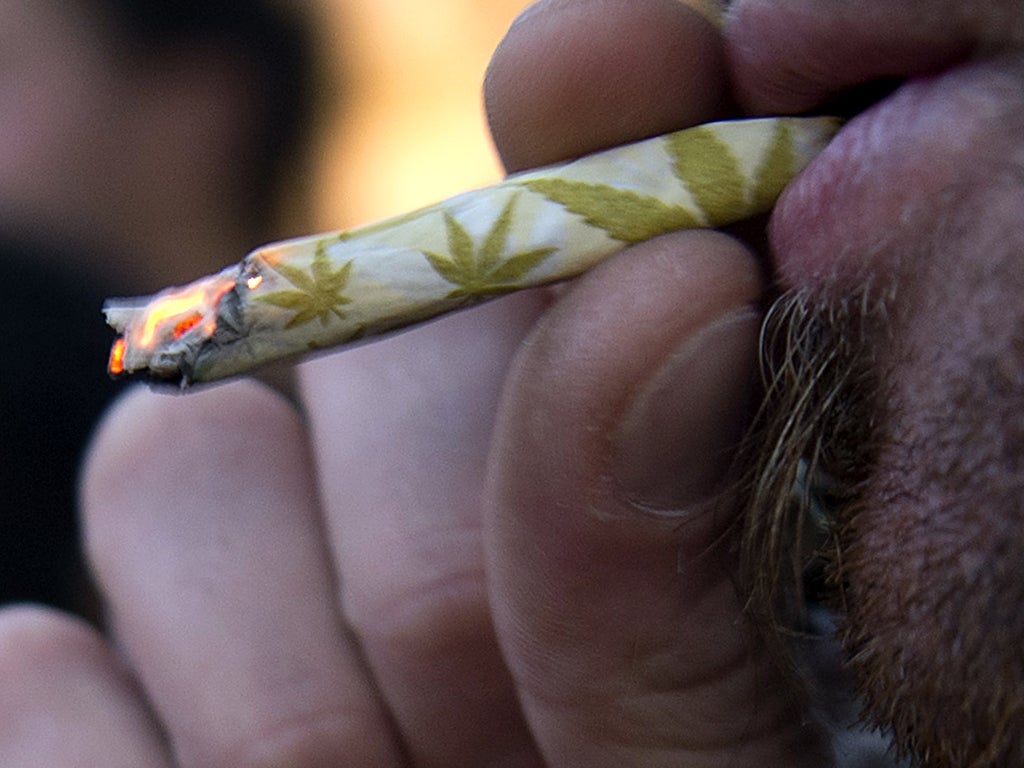If cannabis is legal, more teenagers will smoke it – and that can’t be good
People who want to legalise drugs talk about harm reduction, and they are right to


Your support helps us to tell the story
From reproductive rights to climate change to Big Tech, The Independent is on the ground when the story is developing. Whether it's investigating the financials of Elon Musk's pro-Trump PAC or producing our latest documentary, 'The A Word', which shines a light on the American women fighting for reproductive rights, we know how important it is to parse out the facts from the messaging.
At such a critical moment in US history, we need reporters on the ground. Your donation allows us to keep sending journalists to speak to both sides of the story.
The Independent is trusted by Americans across the entire political spectrum. And unlike many other quality news outlets, we choose not to lock Americans out of our reporting and analysis with paywalls. We believe quality journalism should be available to everyone, paid for by those who can afford it.
Your support makes all the difference.I know all right-thinking people are supposed to be delighted that Colorado has legalised cannabis, the first American state to do so. We are supposed to say, “When, oh, when will our government realise that it is losing the war on drugs and should take a lesson even from Americans, who can be surprisingly liberal sometimes?” But let us pause.
The idea that the existing policy on drugs in this country, and almost everywhere in the world apart from Colorado and Uruguay, is a self-evident failure is not a truth that is self-evident to me. In particular, the “war on drugs”, and the notion that it is being “lost”, is a cliché that helps to shut down thought rather than encourage it.
Illegal drug use in this country has decreased, is decreasing and ought to decrease further. In particular, young people in Britain drink less alcohol, smoke less tobacco and use fewer illegal drugs than they did. Those are good trends. If the Government is waging a war on drugs, it is winning it.
People who want to legalise drugs talk a lot about harm reduction, and they are right to do so. Let us then, while we are pausing, ask two questions. One, is cannabis harmful? Mostly, no. Mostly, its effect is to make people boring. But it is possible that, in some cases, it acts as a trigger for serious mental illness, especially for male teenagers.
Whether cannabis has been shown to be a trigger for people who are susceptible, or whether such people tend to try cannabis, is disputed, and the proportion of people who might be susceptible is small. But it would seem an unwise idea to do anything that might encourage more people to try cannabis unless we are sure.
So the next question is whether legalising cannabis would lead to more young people trying it. Well, what do you think?
It is at this stage that supporters of legalisation tend to drive the argument into the bowling-alley gutters by saying, “What about the harm done by alcohol?” It is serious, is the answer to that. And it is certainly more serious, on aggregate, than the harm done by cannabis. But that is an attempt to change the subject. Do something about attitudes to alcohol by all means. Rush out and buy Alastair Campbell’s much-admired novel, My Name Is. Give up for January. Or for life. But none of this answers the question about how to minimise the harm of cannabis.
Then there is the harm done by the control of the production and supply of drugs by criminals. Yes, it is a problem. But we are mainly talking about cocaine and heroin, if we mean organised crime and drugs, and a lot of the harm in those cases is suffered in Colombia and Afghanistan. I don’t have the answers to that; but then, neither do the advocates of legalising cannabis, who tend not to propose legalising “harder” drugs, yet.
Finally, legalisers sometimes say that it is jolly confusing that cannabis is illegal in theory but that the police tend to concentrate on more important things in practice. It’s a compromise. It is so sensible that it is the most common legal position all over the world: illegal but not stringently enforced for small amounts. It is intellectually unsatisfactory, but it is winning. The people who want to change it have to make a better case.
Twitter: @JohnRentoul
Join our commenting forum
Join thought-provoking conversations, follow other Independent readers and see their replies
Comments